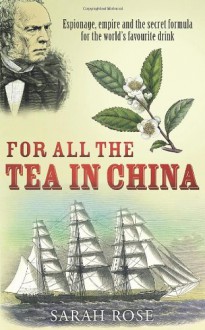
bookshelves: african-continent, nonfiction, pirates-smugglers-wreckers, autumn-2012, published-2010, turkish-and-or-ottoman-root, afr-morocco, afr-tunisia, afr-algeria, war



Read by Clive Chafer
Overview -
The true story that's "bloody good entertainment" (New York Times) about the colorful and legendary pirates of the 17th century.
If not for today's news stories about piracy on the high seas, it'd be easy to think of pirating as a romantic way of life long gone. But nothing is further from the truth. Pirates have existed since the invention of commerce itself, and they reached the zenith of their power during the 1600s, when the Mediterranean was the crossroads of the world and pirates were the scourge of Europe. Historian and author Adrian Tinniswood brings this exciting and surprising chapter in history alive, revealing that the history of piracy is also the history that has shaped our modern world.
Starts off with the modern day Somali Pirates and there is nothing pretty to report.
 The Rainbow (left) unsuccessfully engaging John Ward's flagship
The Rainbow (left) unsuccessfully engaging John Ward's flagshipIssouf Reis of Tunis, fervent in his devotion to Islam, was so wealthy that that by 1615 he had built himself a ‘faire Palace, beautified with rich Marble and Alabaster stones’. His household was so big that when he had guests for dinner, it was served not by a demure maidservant but by 15 male waiters. Very short, white-haired but nearly bald, he had a swarthy complexion.
A typical North African, you might think. Only he wasn’t. He had been born and bred in Faversham, and his real name was John Ward. The exact date of his birth isn’t yet known, but it was around 1553. Maybe he was the John Ward who is recorded as living on the west side of Preston Street on 31 December 1573 and 31 May 1574 and by 22 December 1574 had moved to Court Street - and then disappears from view. Source: http://www.faversham.org/history/peop...
 Europeans enslaved by North African captors - two mosques in the background.
Europeans enslaved by North African captors - two mosques in the background.John Ward (aka Yusuf Reis): Arch Pirate Of Tunis; in 1608, feeling insecure in Tunis, Ward offered James I of England £40,000 for a royal pardon, but this was refused, so he returned to Tunis, where Uthman Dey kept his word and he remained for the rest his days.


Sir Francis Verney (1584 – 6 September 1615) was an English adventurer, soldier of fortune, and pirate. A nobleman by birth, he left England after the House of Commons sided with his stepmother in a legal dispute over his inheritance, and became a mercenary in Morocco and later a Barbary corsair. Source: http://en.wikipedia.org/wiki/Francis_...


Peter Easton (c. 1570 – 1620 or after) was a pirate in the early 17th century who operated along the Newfoundland coastline between Harbour Grace and Ferryland from 1611 to 1614. Perhaps one of the most successful of all pirates he controlled such seapower that no sovereign or state could afford to ignore him and he was never overtaken or captured by any fleet commissioned to hunt him down. However, he is not as well known as some of the pirates from the late 17th and early 18th centuries.

 Log in with Facebook
Log in with Facebook 

















